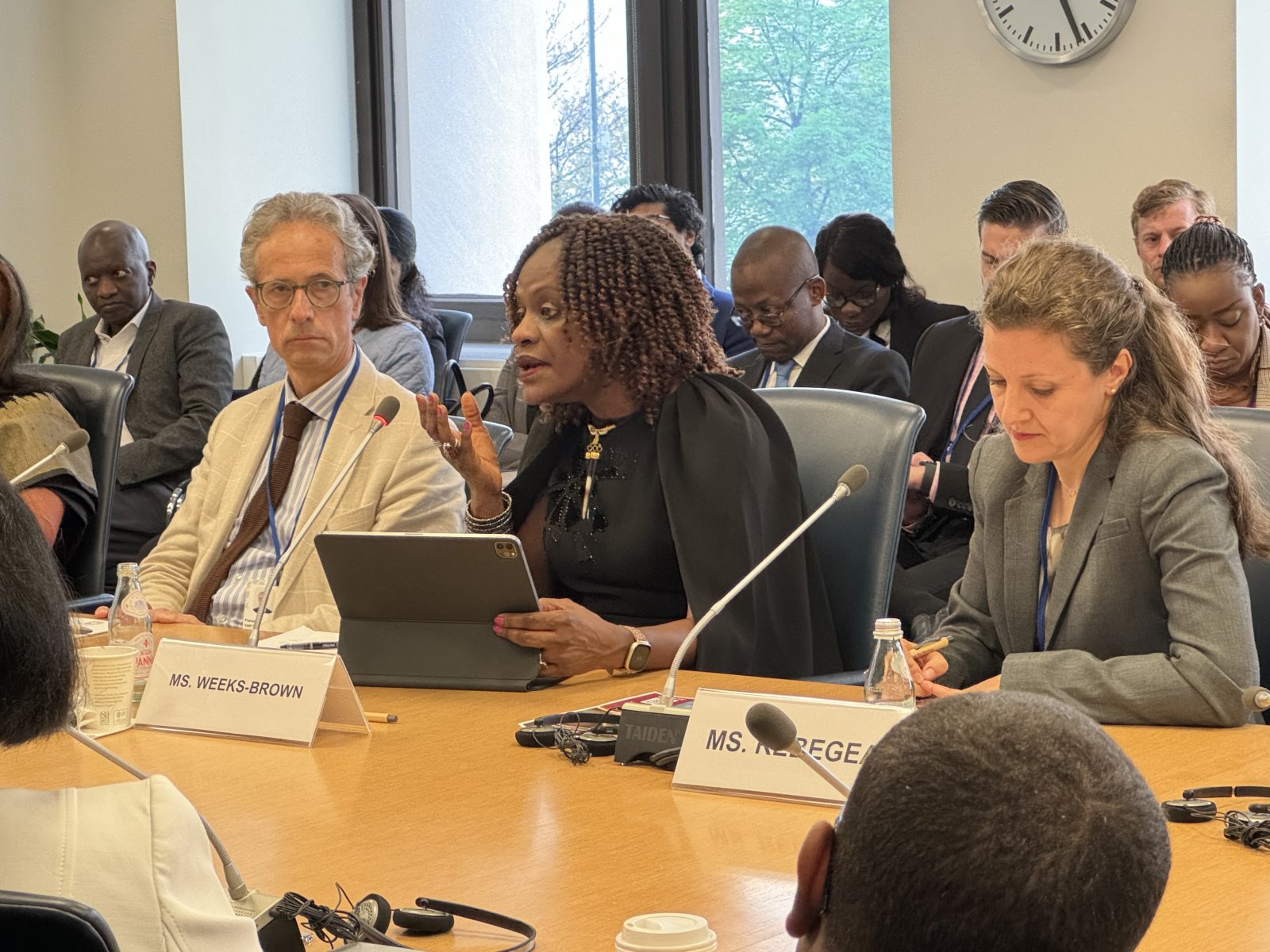
Rhoda Weeks-Brown talks about the importance of debt transparency
SHARE
ISSUES
A polycrisis is the simultaneous occurrence of several catastrophic events, and that is exactly what we see with global public debt. Over the past several years, the international debt burden has reached unprecedented levels. Two dozen African countries are in or nearing debt distress. As a result, countries are dedicating more and more of their budgets to servicing their debt, preventing them from investing in their countries’ growth and development. Across the globe, recent analysis suggests debt service expenses are 3.7 times health spending and 2.5 times education spending. The resulting cuts in public spending have a particularly high toll on women and other vulnerable groups, and can lead to higher rates of layoffs and cuts to services. Overall, 3.3 billion people now live in countries where their government spends more on debt service than health or education.
Compounding this issue, information on public debt is often inaccessible, leaving citizens unaware of just how much debt their governments have signed them up for.
At the World Bank Group’s 2024 Spring Meetings, the National Democratic Institute (NDI), together with colleagues from Transparency International (TI), FEMNET (African Women's Development and Communication Network), Transparency International Sri Lanka and the International Monetary Fund (IMF) hosted a session on the debt crisis and its impact on good governance and public integrity and how debt transparency can help alleviate the issue.
The event featured the Civil Society Debt Transparency and Accountability Checklist, recently launched by NDI and TI, as a practical tool that citizens can use to assess their public debt against established good practices. The expert panelists participating in this event highlighted four key points.
First, as the IMF’s General Counsel Rhoda Weeks-Brown said, “Clearer and stronger debt transparency is actually a public good itself.” Despite the known macroeconomic benefits of debt transparency, such as reduced borrowing costs and increased investor confidence, few countries have adequate legal frameworks for debt transparency, according to a new report from the IMF. The report further states that in many of the countries surveyed, mechanisms for managing public debt are simply broken, with legislation having ambiguous roles and responsibilities for debt acquisition and management across government and parliament.
Second, the impacts of public debt are not equal. Women and girls often act as “shock absorbers” as governments seek to service their debt. FEMNET’s Nicole Maloba stated that the negative impacts of regressive tax measures, combined with rising costs of living, food, and fuel, “all trickle down to women.” Budget cuts in public health and education sectors, where women are overrepresented in the workforce, amplify this issue.
DSC_6542.JPG
Lastly, lenders’ role in this polycrisis cannot be overlooked. As Transparency International’s Chair of the Board Francois Valerian said, “an appetite for high yield…is also an appetite for bad governance.” Lenders have an important role to play in promoting debt transparency. By disclosing information on public loans, lenders can assist local civil society in holding their governments to account thus reducing burdens of debt service upon the people.
NDI drew on these discussions when developing its new Civil Society Debt Transparency and Accountability Checklist. This new tool offers civil society organizations a simple way to assess how transparent their country’s public debt is and offer recommendations on how to strengthen the public debt legal and institutional framework. In order to provide a comprehensive but accessible guide to users, the checklist outlines 13 transparency and accountability principles and 59 good practices in debt management.
Civil society organizations can use this tool for multiple purposes:
- To learn more about how governments acquire and manage public funds
-
To monitor government borrowing and debt management practices
-
Identify gaps in legislation
-
Assess the level of access to debt information
-
Design advocacy campaigns
-
As an entry point for discussions with policymakers and the government
-
And to raise awareness amongst the public
Members of parliament, their staff, and civil servants can all benefit from using this Checklist to identify any potential areas of improvement in their own debt legislation as well.
NDI seeks to take the best practices of debt transparency and accountability from expert bodies and put them in the hands of democracy activists. Tools like this one provide a framework for civil society to propose meaningful, well-tested policy solutions that can both guide their governments to promote transparency and accountability surrounding outstanding debts and free up funds for services and programs that directly contribute to national welfare. In other words, creating transparent and accountable debt practices is a crucial step for solving the polycrisis so that democracies can deliver for their citizens.
Author: Richard Christel, Program Manager of NDI’s Democratic Governance team
NDI’s engagement with this program is implemented with the support from the National Endowment for Democracy (NED) program.
Related Stories:
Supporting Malawi’s Parliament to Apply a More Critical Eye to Public Debt
The Environment, Security and Democracy
Cabo Verde Lifts the Veil on its Democratic Success
###
NDI is a non-profit, non-partisan, non-governmental organization that works in partnership around the world to strengthen and safeguard democratic institutions, processes, norms and values to secure a better quality of life for all. NDI envisions a world where democracy and freedom prevail, with dignity for all.


